The Aspen Young Leaders Fellowship aims to elevate talented youth in an underserved region.
“You have to take a personal interest in making your community beautiful,” says Kaitlyn Done. “You need to take the initiative and say, ‘This is what’s going on in my community – and this is what I want to change.’”
Kaitlyn knows firsthand the satisfaction that comes when you seize an opportunity to lead—and the ways a community benefits when a positive vision is transformed into action.
The 19-year-old Spelman College sophomore was awarded an Aspen Young Leaders Fellowship for 2018-19, joining the first cohort of youth from the Delta region of Mississippi and Arkansas to be part of the program.
Over the course of their 10-month fellowship, Kaitlyn and her colleagues learned that the power to affect change in their communities lies within themselves – in understanding their passions, developing and testing ideas, and learning how to bring them to life as emerging leaders.
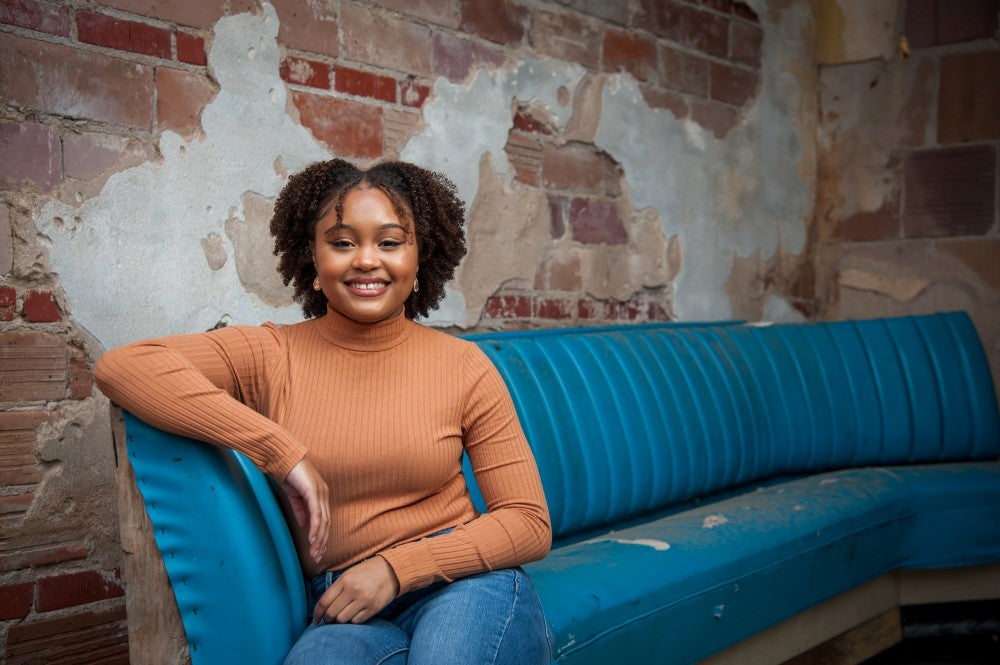 Kaitlyn Done, currently a sophomore at Spelman College, was an Aspen Young Leaders Fellows in 2018-19 and a member of the program’s first Delta region cohort.
Kaitlyn Done, currently a sophomore at Spelman College, was an Aspen Young Leaders Fellows in 2018-19 and a member of the program’s first Delta region cohort.
That’s the goal of the fellowship, which the Aspen Institute designed as a place-based initiative co-created with local communities to develop purpose-driven leaders.
The program works with young adults ages 18-22 in Coahoma County, Mississippi, Phillips County, Arkansas and surrounding areas of the Delta. Aspen cohorts reflect the demographic makeup of the youth most marginalized from opportunity.
In the Delta, most fellows are Black and some are Latinx. Many are college bound or enrolled in vocational programs. Aspen also encourages applicants who are not in school or the workforce but have demonstrated the talent and potential to lead.
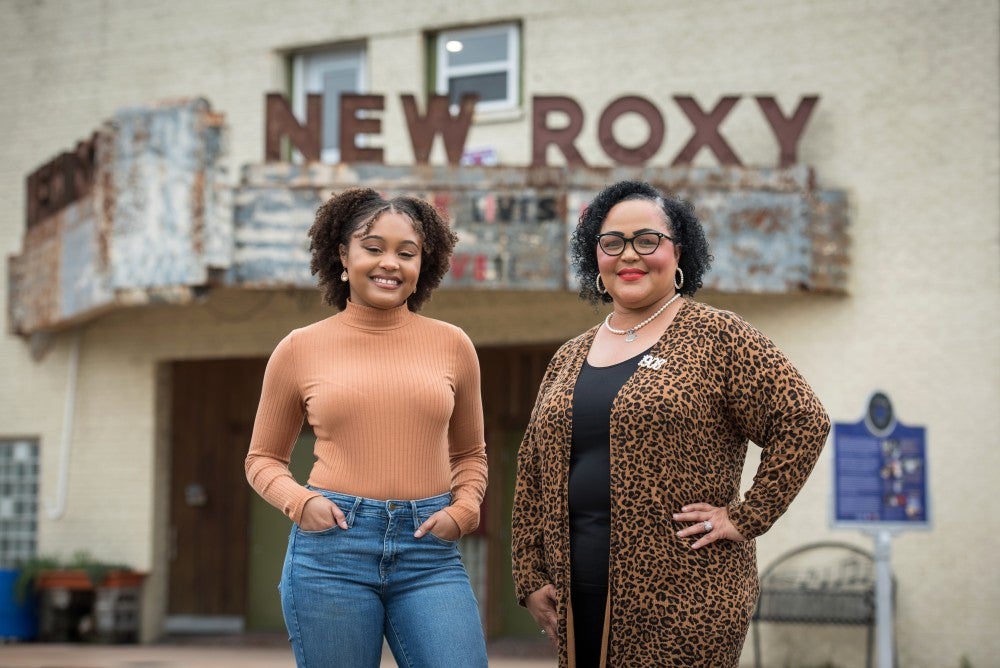 Kaitlyn Done and her mother, Karen Woods-Done, outside the New Roxy Theater in Clarksdale, Mississippi. Photo Credit: Rory Doyle
Kaitlyn Done and her mother, Karen Woods-Done, outside the New Roxy Theater in Clarksdale, Mississippi. Photo Credit: Rory Doyle
“We’re working with youth who have been distanced from opportunity,” says John Dugan, executive director of youth leadership programs with the Aspen Institute. “When I see the Delta, I see all of this rich talent, all of this entrepreneurial spirit, compassion for people, but it’s often untapped.”
Aspen worked intentionally with community leaders and youth to design a program addressing the unique challenges facing young people in the Delta. The region is one of the country’s most impoverished and race has historically been a major barrier to opportunity.
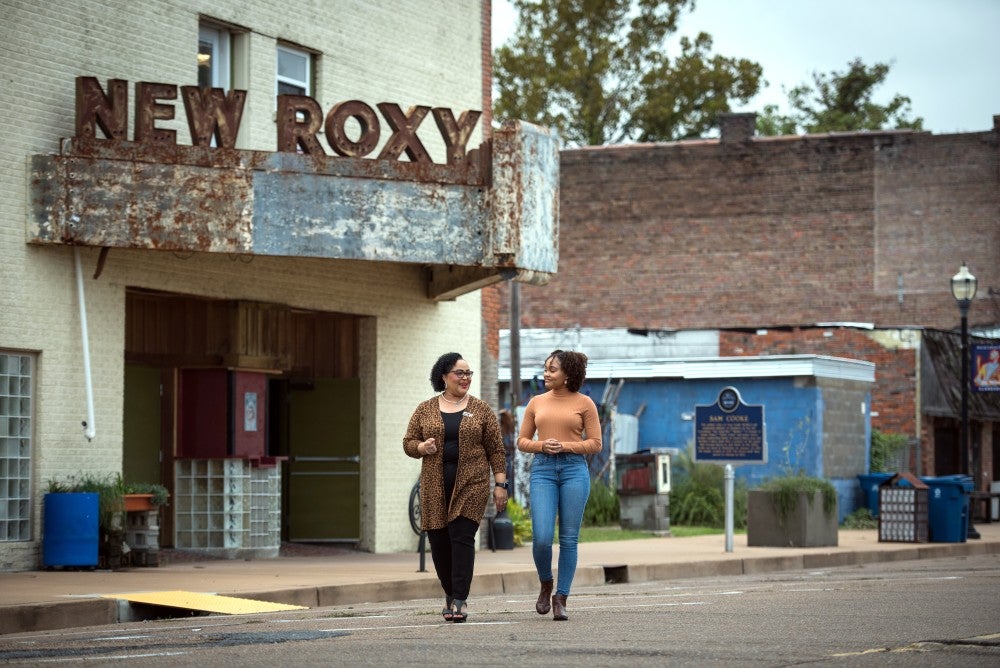 Karen Woods-Done says the Aspen Young Leaders Fellowship is a “life transforming” experience for youth in the Mississippi and Arkansas Delta. Photo Credit: Rory Doyle
Karen Woods-Done says the Aspen Young Leaders Fellowship is a “life transforming” experience for youth in the Mississippi and Arkansas Delta. Photo Credit: Rory Doyle
“We didn’t want to be part of the history of the Delta of outsiders coming in and bringing solutions and retrofitting them to perceived problems,” says John. “We wanted to co-create a solution and co-create opportunity for young people in the Delta.”
The Walton Family Foundation supports Aspen’s Delta fellowship program as part of our work to improve quality of life in the region. It reflects our core value of being rooted in the communities we serve – and our belief that those closest to the challenge are closest to the solution. For almost 30 years, the foundation has invested in education and youth development in the Delta.
One of the messages the Aspen Institute took to heart in its brainstorming with Delta leaders: the region’s young people needed support beyond completion of a one-year fellowship.
The result? The fellowship program now extends over five years. Fellows take one year of intensive training, which includes a paid internship, and then receive four years of additional targeted support and mentoring to help them complete college degrees, prepare resumes, find jobs and achieve life goals.
“Aspen wanted this to be a grassroots program that helped students learn the needs that exist in their communities,” says Karen Woods-Done, Kaitlyn’s mother, and director of student engagement at Coahoma Community College. “The support they are receiving will be life transformational for these students.”
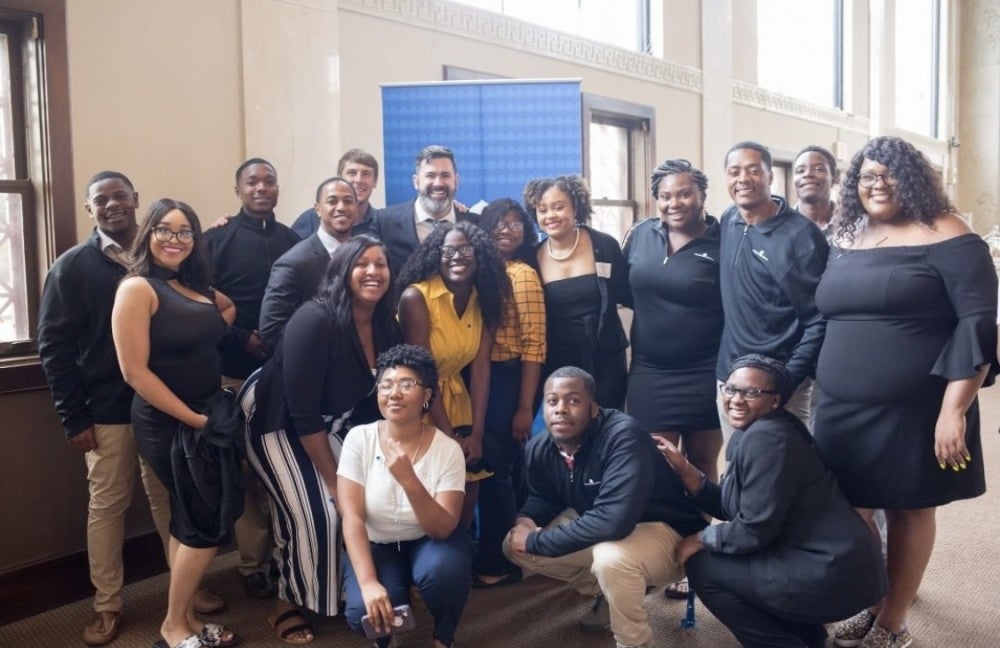 Members of the first Delta cohort of the Aspen Young Leaders Fellowship traveled to New Orleans to meet with community leaders and the city’s mayor.
Members of the first Delta cohort of the Aspen Young Leaders Fellowship traveled to New Orleans to meet with community leaders and the city’s mayor.
For Kaitlyn, the fellowship was a once-in-a-lifetime opportunity. She and the other members of her cohort completed 150 hours of seminars, studying the works of Black authors like James Baldwin and philosophers ranging from Aristotle to Machiavelli. The fellowship included a road trip to New Orleans, where they met with community activists and artists, as well as New Orleans Mayor LaToya Cantrell.
In addition, Aspen fellows have access to virtual tutoring and receive monthly coaching and social-emotional support to address any personal challenges they are facing.
“We’re helping them identify their own philosophy of leadership and the type of impact they want to have on their community,” says Ana Rossetti, deputy director of the fellowship program. “And then we’re building skills on how to work effectively in teams and manage projects.”
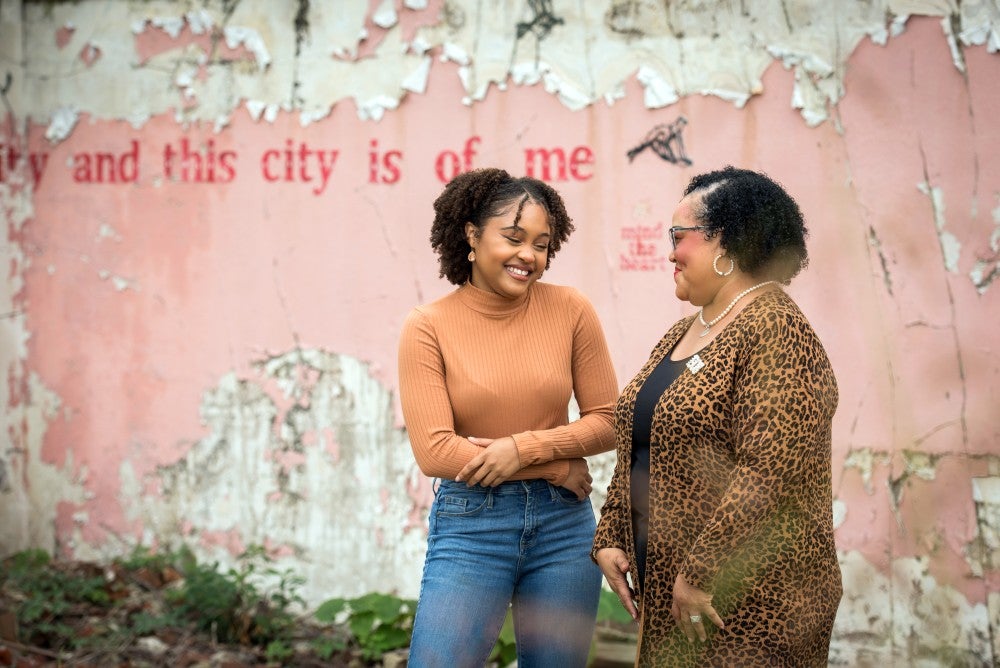 “You have to take a personal interest in making your community beautiful,” says Aspen Young Leaders Fellow Kaitlyn Done. Photo Credit: Rory Doyle
“You have to take a personal interest in making your community beautiful,” says Aspen Young Leaders Fellow Kaitlyn Done. Photo Credit: Rory Doyle
Kaitlyn’s cohort culminated with the production of a cultural event that featured paintings, drawings, comedy, spoken word, drama and music created and performed by Delta youth. The event also included a voter registration drive.
“I have never before had someone say to me, ‘You’re in charge. It’s your project. It’s what you want it to be,’” says Kaitlyn, a graduate of Lake Cormorant High School. “I felt very empowered by that.”
The Delta fellows wanted to break down barriers between Black and white residents of the Delta, to celebrate unheard voices and elevate positive messages about the region’s vibrant culture.
 For their community impact project, Aspen fellows produced an arts and cultural event featuring live drama, music and spoken word performances at the New Roxy Theater in Clarksdale, Mississippi. Photo Credit: Chris Fitchen
For their community impact project, Aspen fellows produced an arts and cultural event featuring live drama, music and spoken word performances at the New Roxy Theater in Clarksdale, Mississippi. Photo Credit: Chris Fitchen
“We wanted to raise up young people who are not in government or leadership positions, but who also deserve to have a say in making their community beautiful,” Kaitlyn says. “We wanted to inspire them to channel their energy and emotion, to show that we love our community for what it is and what we want it to be.”
The event was held at the New Roxy Theater in Clarksdale’s New World District, which during segregation was the main commercial and cultural street for the city’s Black residents.
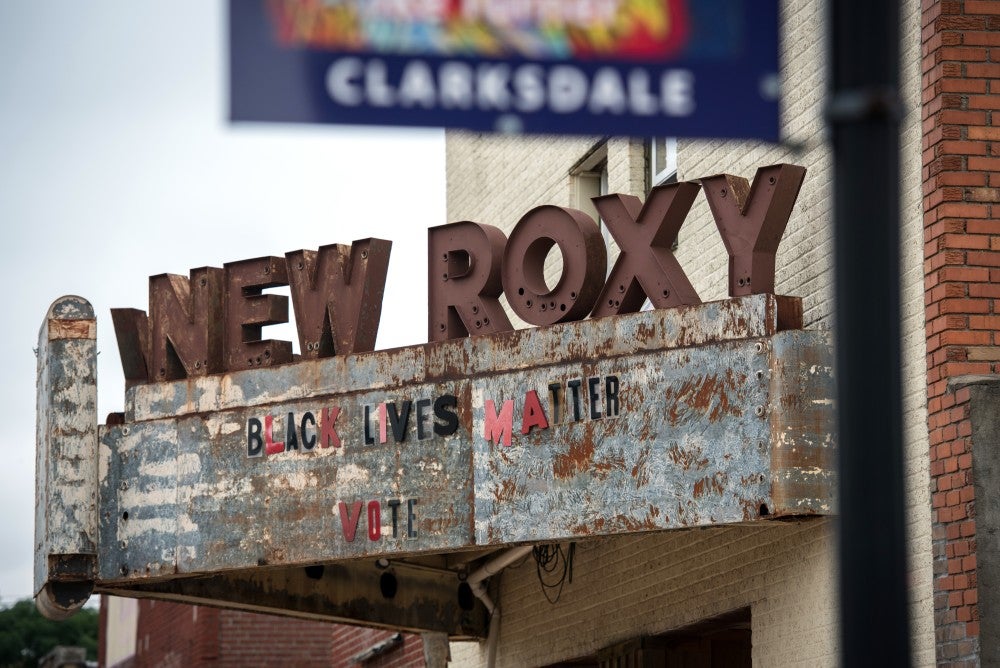 Photo Credit: Rory Doyle
Photo Credit: Rory Doyle
“One of the most beautiful things about that event was the diversity of the audience. It wasn’t just a Black audience,” says Karen.
“There is still very much a racial divide in the Delta, but this event brought in people from all backgrounds. These young people worked hard to break down racial barriers and showcase the talent that exists in our community.”
Kim Davis is a senior advisor for the Home Region Program at the Walton Family Foundation. Before joining the foundation, he was the director of external relations and economic development and director of education and workforce for the Northwest Arkansas Council.
This blog post was initially published by the Walton Family Foundation and republished with permission.
